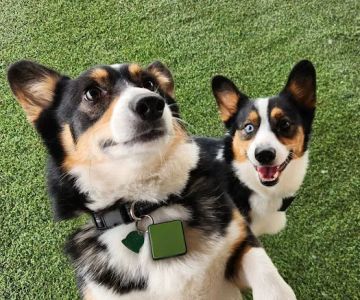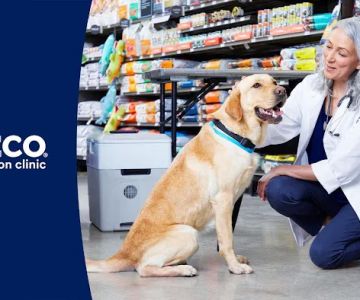Can Veterinarians Get the COVID Vaccine? What You Need to Know About Vaccine Eligibility and Safety
- 1. Overview of Veterinary Healthcare Workers and Vaccine Eligibility
- 2. Why Veterinarians Are Considered Essential Workers for COVID Vaccine
- 3. Vaccine Availability and Veterinarian Eligibility in the U.S.
- 4. Safety Concerns and Considerations for Veterinarians
- 5. How Vaccination Affects Veterinary Practice and Public Health
- 6. Real-World Examples and Stories of Veterinarians Receiving the Vaccine
- 7. Conclusion and Encouraging Veterinarians to Get Vaccinated
1. Overview of Veterinary Healthcare Workers and Vaccine Eligibility
Veterinarians and veterinary healthcare workers play an essential role in maintaining public health and animal welfare. During the COVID-19 pandemic, the question of whether veterinarians can get the COVID vaccine has gained increasing attention. The importance of vaccination for those in healthcare professions, including veterinary professionals, is vital to reduce the risk of disease transmission and maintain the smooth operation of healthcare services. Veterinarians are often exposed to a variety of animals that could carry diseases that potentially have zoonotic implications (diseases that can spread from animals to humans). As healthcare workers, they also interact with many people, such as pet owners and staff members. This makes their role critical in preventing the spread of COVID-19, especially as animal hospitals and clinics continue to operate during the pandemic. As the world navigates the ongoing health crisis, many veterinarians are questioning if they are eligible for the COVID vaccine and what the process looks like. In this article, we will explore the various factors that determine vaccine eligibility for veterinarians, safety concerns, and how vaccination can benefit the veterinary field.
2. Why Veterinarians Are Considered Essential Workers for COVID Vaccine
Veterinarians and their staff are considered essential workers by the Centers for Disease Control and Prevention (CDC) because they provide critical healthcare services to animals and support public health. Throughout the pandemic, animal care and public health were never put on hold, with veterinary clinics and hospitals continuing to operate in many locations, albeit with new safety measures in place. Veterinarians are responsible for maintaining the health of pets, livestock, and other animals, often dealing with situations that can affect human health directly or indirectly. Additionally, veterinary healthcare workers are at risk of exposure to COVID-19 through interactions with both animals and people. Given these factors, veterinarians have been prioritized as part of the essential workforce eligible for the COVID vaccine, along with other frontline healthcare professionals such as doctors and nurses. By vaccinating veterinarians, public health officials are ensuring that veterinary clinics remain open and able to operate effectively, helping to avoid disruptions in animal care that could have long-term consequences for animal health and public safety. Thus, veterinarians are included in vaccine rollout plans in many regions around the world.

14185 Beach Blvd Ste 8, Jacksonville Beach, FL 32250, USA
See Details3. Vaccine Availability and Veterinarian Eligibility in the U.S.
The availability of the COVID-19 vaccine has been a critical issue for healthcare workers, including veterinarians. In the U.S., the vaccine rollout initially focused on the most vulnerable populations and frontline healthcare workers, which included hospital staff and emergency workers. However, as vaccine availability expanded, veterinarians and other essential workers were added to the list of eligible groups. Veterinary professionals working in private practices, animal shelters, veterinary teaching hospitals, and even research facilities may qualify to receive the vaccine based on their role in providing essential services to the public. Eligibility can vary by state and region, depending on the vaccination strategy set forth by local public health authorities. In many states, veterinary professionals were given access to the vaccine in phases, alongside other healthcare personnel such as pharmacists and dentists. If you are a veterinarian or veterinary technician, it is important to stay informed about local vaccination schedules and requirements. Many veterinary associations and organizations, such as the American Veterinary Medical Association (AVMA), provide updates and resources to help veterinarians understand when and how they can get vaccinated.
4. Safety Concerns and Considerations for Veterinarians
Safety concerns surrounding the COVID-19 vaccine are common among various populations, including veterinary professionals. However, it is important to note that the COVID-19 vaccines authorized for use by the FDA have undergone extensive testing and trials, demonstrating their safety and efficacy. Both the Pfizer and Moderna vaccines, which are mRNA-based vaccines, have been shown to significantly reduce the risk of severe illness and death caused by COVID-19. For veterinarians, specific concerns may revolve around potential side effects from the vaccine, such as mild soreness at the injection site, fatigue, or low-grade fever. These side effects are typical of vaccines in general and generally subside within a few days. Given that veterinarians often work in high-stress environments, it’s essential to weigh the benefits of vaccination against any potential disruptions caused by mild side effects. The COVID vaccine is particularly important for veterinarians who may be in contact with high-risk populations, including the elderly, immunocompromised individuals, or essential workers. Vaccination not only protects the individual veterinarian but also reduces the risk of spreading the virus to colleagues, clients, and vulnerable communities.
5. How Vaccination Affects Veterinary Practice and Public Health
Vaccination of veterinarians contributes to the broader goal of controlling the COVID-19 pandemic, as it helps to minimize the spread of the virus within veterinary clinics, animal hospitals, and other settings where human-animal interactions are common. For veterinary practices, ensuring staff members are vaccinated can lead to reduced sick days, fewer disruptions in services, and greater public trust in the safety of the environment. From a public health perspective, vaccinating veterinarians is a critical step in maintaining the continuity of animal healthcare services. These services are vital to human health, as animals can serve as reservoirs for diseases that may cross over to humans. A vaccinated workforce is better equipped to keep veterinary practices open and running smoothly, even during a pandemic. Furthermore, as more people are vaccinated, the collective immunity in the population rises, contributing to the eventual control of the virus. Veterinary professionals are part of the larger healthcare ecosystem, and their role in preventing the spread of COVID-19 should not be underestimated.
6. Real-World Examples and Stories of Veterinarians Receiving the Vaccine
Many veterinarians have shared their experiences with receiving the COVID-19 vaccine, providing valuable insights into how the process works and what to expect. In several states, veterinarians were among the first healthcare workers to be vaccinated, with local veterinary hospitals and clinics reporting high rates of participation in vaccine programs. For example, Dr. Sarah Johnson, a veterinarian from California, shared her experience of receiving the vaccine. "It was a simple process," she said. "I was a bit nervous at first, but the staff made me feel comfortable. After getting the shot, I only had mild soreness for a day. It was definitely worth it to ensure that I can continue working safely and protect my clients and patients." These personal stories help demystify the vaccine process and encourage other veterinary professionals to take part. Hearing firsthand accounts from peers can also alleviate fears and encourage more veterinarians to get vaccinated, contributing to the overall success of vaccination efforts.
7. Conclusion and Encouraging Veterinarians to Get Vaccinated
In conclusion, veterinarians are indeed eligible to receive the COVID-19 vaccine and are encouraged to do so for their own health, the safety of their patients, and the wellbeing of the broader community. As essential healthcare workers, veterinarians play a vital role in public health, and vaccination is an important step in ensuring they can continue their work safely and effectively. For veterinarians, getting vaccinated is not just about protecting themselves but also about protecting the people and animals they care for. With the availability of vaccines and ongoing public health efforts, it is crucial for veterinarians to remain informed about vaccine opportunities and to take action when eligible. For more information about the COVID-19 vaccine and related healthcare resources, visit CasinoScope, where you can access valuable guidance on maintaining safety and health in veterinary practice.










